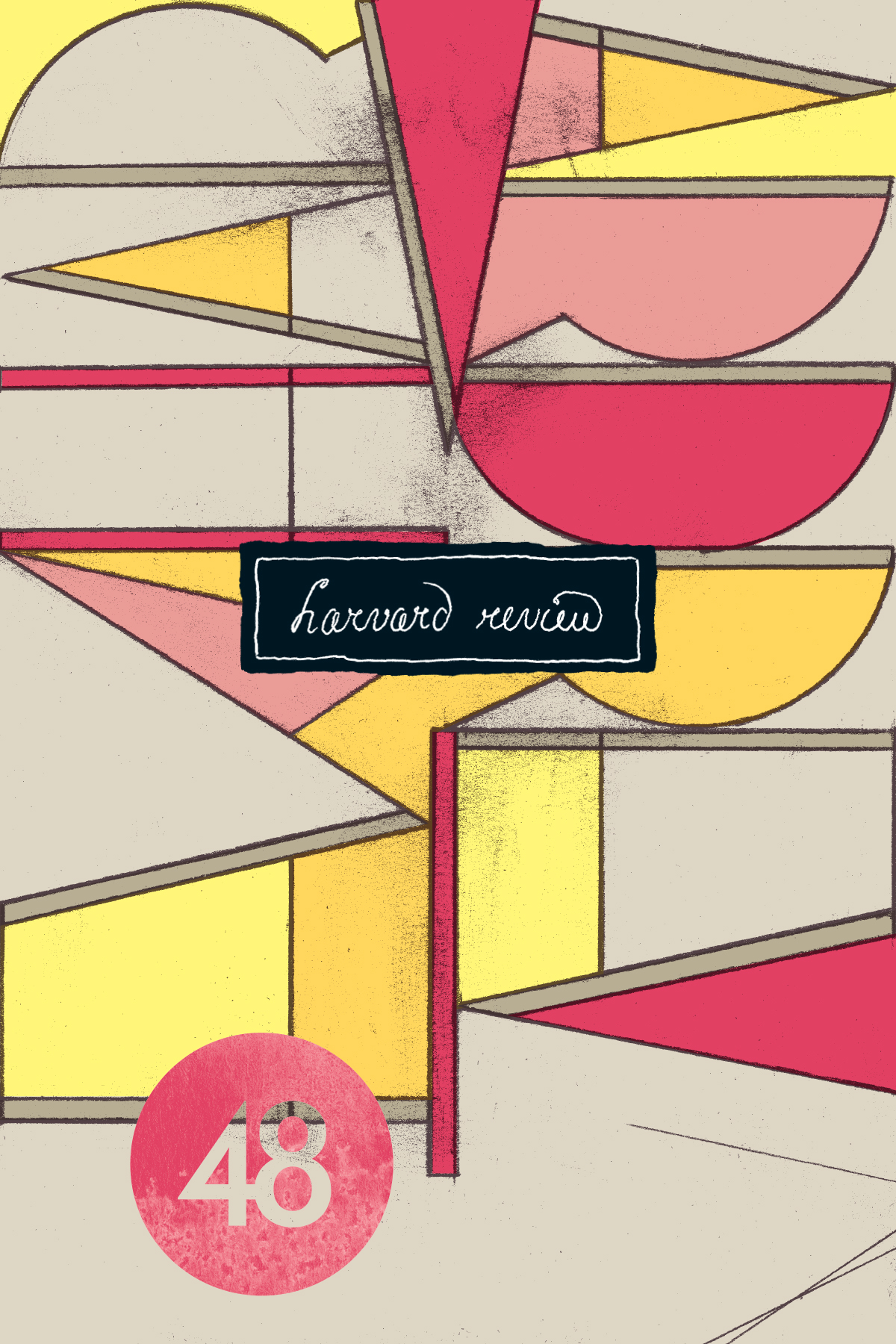HR 48 Editorial
by Christina Thompson
I remember writing an editorial just after 9/11 and thinking that the world felt as if it were going mad. There is some strangeness in the air again: this overheated political climate; the rampant shootings; a sense of fear. The world of literary magazines can feel as glassy and still as a mill pond by comparison: what have we to do with all of that? And yet, this is where history is really written—where stories and ideas are taken apart, rolled around, spliced, diced, examined, and put back together again in new and, hopefully, enlightening ways.
In this issue we have lots of politics, mercifully none of it involving Donald Trump. Brian Doyle writes about Irish independence and how his parents always took him out of school on the anniversary of an Irish patriot’s birthday. Roxana von Kraus remembers life under communism—“In Romania I never ate a whole orange by myself. ” Patricia Vigderman asks where Western Civilization’s antiquities belong; Aracelis Girmay writes about race in America; and George Choundas takes a long and humorous look at the 2000-year history of antagonism between the Italians and the Greeks.
I often feel that ideas ricochet around inside an issue, and there are some connections between these pieces and a story by Catherine Carberry that appeared, miraculously, in a pile of unsolicited submissions. “Salvo for New Spain” is not quite like anything I’ve read in a long time. A dashing, vivid story with strange elements, it is at once political (the setting is the rise of fascism in Spain) and magical, or maybe mythological, like something out of Ovid or the Brothers Grimm. Carberry’s story is one of rebellion and transformation, but its characters are not partisans or fighters but fractious adolescent girls.
A very different story—cooler in tone and more completely realized—is “The Accident” by Andrea Barrett. I don’t know how long I have been trying to solicit a piece by Barrett for Harvard Review, but I’m sure it’s going on at least ten years. Barrett is one of my all-time favorite writers; Ship Fever and The Voyage of the Narwhal have a special place on my bookshelf beside some books by Jonathan Raban and Janet Browne’s biography of Charles Darwin. Somehow I just kept missing my chance, and so you may imagine my delight when an email arrived offering us one of her stories. “The Accident” is also about teenage girls, but this time the setting is an American town with an aerodrome during the early days of flight.
One of my favorite pieces in this issue is Brian Doyle’s proem “A Sprawl of Brothers.” The first thing of Doyle’s I ever read was a short story called “The Boyfriends Bus,” which was really funny—in a soft-hearted Brian Doyle-ish sort of way—which we published in HR 39. Doyle, I subsequently discovered, is not only a wonderful and prolific essayist, but a novelist, poet, and the editor of the University of Portland’s magazine, which has been described by Annie Dillard as “the best spiritual magazine in the country.”
Formally, there are some nice sets of poems here—Joshua Marie Wilkinson’s “The Easement,” Raúl Zurita’s “Anteparadise” poems, and Cole Swensen’s “More pearl:” and “More pearl again:”—which are both good to look at and interesting to read. Finally, we are pleased to present a number of new voices: Elizabeth Gray, whose reviews we have published for many years; Walter M. Robinson, a physician and emerging writer, who writes movingly about death from a doctor’s point of view; the innovative poet Danniel Schoonebeek; and T. Y. Lee, whose long and harrowing story, “My Name is Manuel Vargas,” contains a clear-eyed look at the fallout from mental illness and the pressures of living in the shadow of the INS.
Published on January 28, 2016
First published in Harvard Review 48

